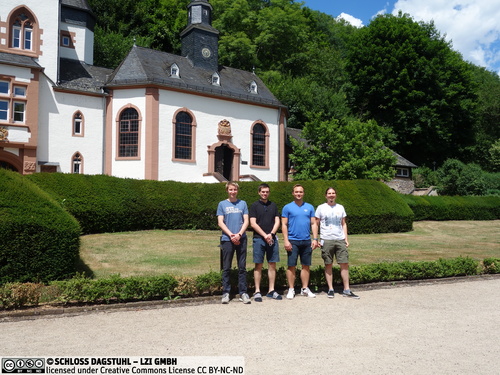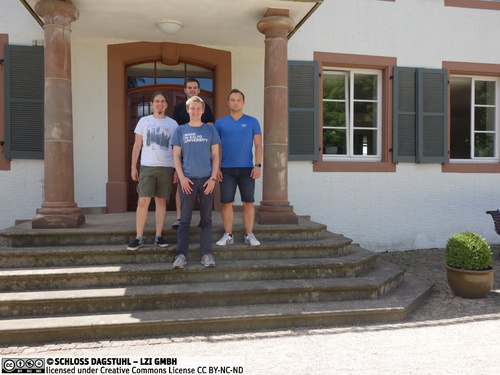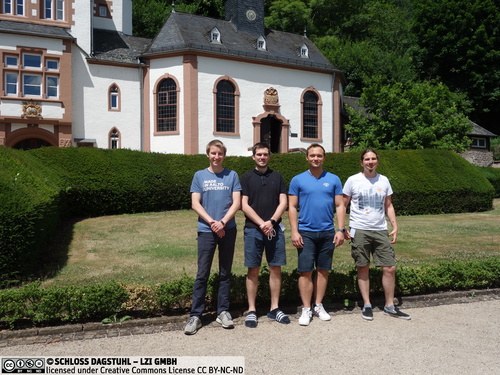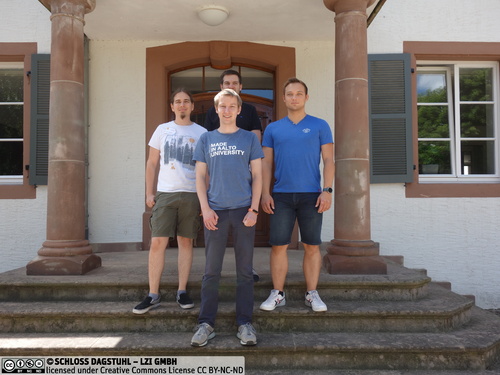Research Meeting 22273
Dissertation Writing Workshop
( Jul 03 – Jul 08, 2022 )
Permalink
Organizer
- Felix Schwinger (RWTH Aachen, DE)
Contact
- Heike Clemens (for administrative matters)
The COVID-19 pandemic put a significant burden on our everyday lives. In academia, and especially in computer science, the travel restrictions and absence of conferences had a devastating effect on the networking and interaction among scholars. While senior researchers and professors could still feed on their experiences and existing networks, junior researchers do not necessarily have these resources at hand. Consequently, an important part of their education, i.e., exchanging ideas with and receiving feedback from experts in the field and other senior scholars, ceased to exist following the outbreak of COVID-19. To mitigate this disadvantage for early career researchers, we are hosting a dissertation writing workshop that allows Ph.D. students to exchange ideas and express their dissertation writing approaches with scholars who are at the same stage of their careers. In particular, we hope that all participants benefit from different backgrounds of the participants, both with respect to the individual research topics as well as to their departments and research groups. Thereby, we intend to---some extent---compensate for the losses of networking at (international) conferences in the past 2,5 years.
Challenges
Writing a dissertation is already challenging during normal times. Often Ph.D. candidates have to juggle between their day-to-day project work, their teaching duties, and their own research. During the COVID-19 pandemic, balancing these duties has become even more complicated for researchers in all fields. Hence, interdisciplinary research became more difficult as vital communications largely came to a halt. Communication, however, is crucial in interdisciplinary work, as no field is able to tackle the challenges on its own. Researchers working in such interdisciplinary fields have the duty to simultaneously address recipients in different fields. As such, the scholarly exchange in interdisciplinary research requires scientific rigor, a thorough methodological foundation, and a good understanding of various viewpoints. Furthermore, the challenges of writing an interdisciplinary thesis are not restricted to the subject-specific content of the dissertation. Different subjects have different writing styles that are hard to learn without direct interaction with scholars from the respective fields. Furthermore, the conventions of the different fields also evolve over time.
Expected Outcome
During the workshop, we hope to milden some of the damage inflicted by the COVID-19 pandemic. Far away from everyday business, we aim to work on the shape, content, and finetuning of academic work such as research papers or the dissertations of the participants. The main objective is the creation of publishable/submittable text, which has been pre-reviewed by advanced Ph.D. students attending the workshop. Beyond the actual generation of content, a dedicated session about structuring and shaping the Ph.D. thesis itself is planned to provide a well-discussed starting point for future improvements.
 Alexander Neumann, Jan Pennekamp, Felix Schwinger, and Sascha Welten
Alexander Neumann, Jan Pennekamp, Felix Schwinger, and Sascha Welten





 Creative Commons BY 4.0
Creative Commons BY 4.0
